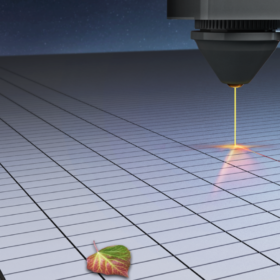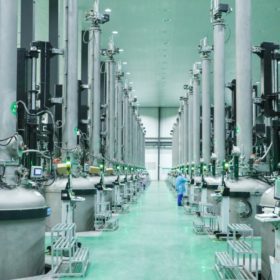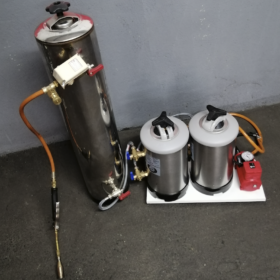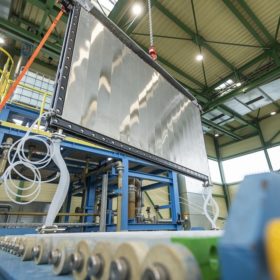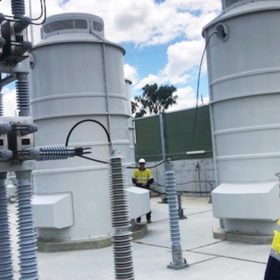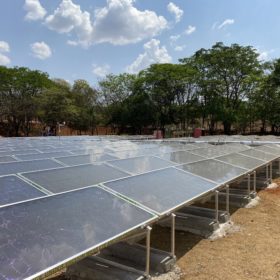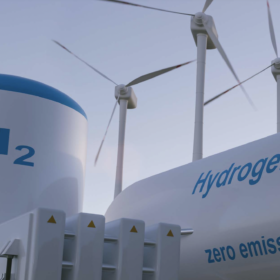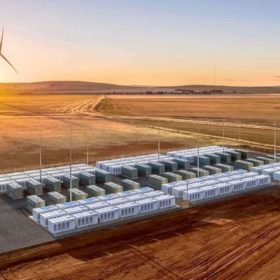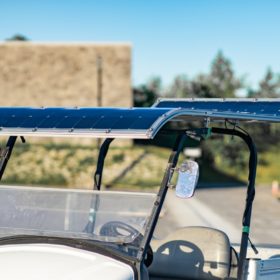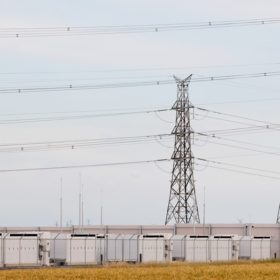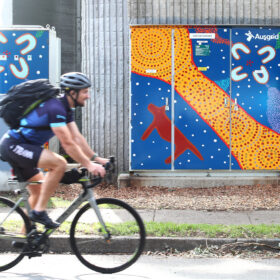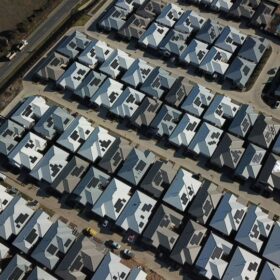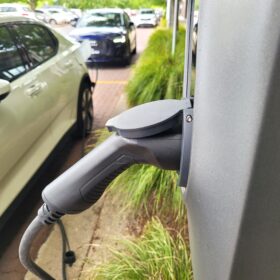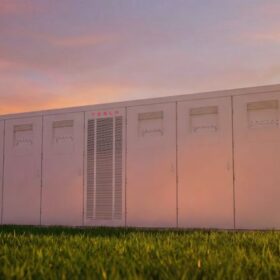Reverse bias – a hidden challenge for perovskite solar cell stability
Research from renowned PV scientist Martin Green and colleagues at UNSW reveals that perovskite solar cells may struggle to deal with reverse-bias caused by uneven shading or other issues likely to appear in the field. Both the reverse-bias itself and resulting build up of heat can cause several of the materials commonly used in perovskite solar cells to degrade, and these issues have received only limited attention in research published to date. Solutions, however, are at hand.
PV industry needs 12 times more polysilicon production capacity by 2050
New research from the University of New South Wales (UNSW) predicts cumulative polysilicon demand of 46-87 Mt will be required to achieve 63.4 TW of PV installed by 2050.
Update: New tech to produce hydrogen from tap water
A Spanish scientist has developed a system that reportedly produces hydrogen on-site without expensive electrolysis. The prototype utilises a water tank that is initially filled with water, ferrosilicon, and sodium hydroxide.
Construction begins on world’s largest integrated green hydrogen, ammonia plant
In other news, German energy company Uniper said it will test a new salt cavern built for hydrogen storage, while Serbia and Hungary signed a memorandum of understanding to collaborate on renewable hydrogen.
Transgrid delivers ‘critical’ interstate transmission project
Network operator Transgrid has completed a $236 million upgrade to the Queensland-New South Wales Interconnector to facilitate the increased flow of electricity between the two states and reduce constraints on the New South Wales transmission network.
Start-up unveils solar thermal panel for large-scale applications
The panel has an absorption area of 1.96 m2 and a weight of 27 kg per square metre. According to the manufacturer – Swiss start-up TVP Solar – it may be a real booster for thermal output, by combining it with photovoltaics and heat pumps to provide enhanced output per square meter, in particular for low-temperature applications such as district heating.
‘Not actually green’: why time matching is key to becoming a hydrogen superpower
Australia is setting out to become a global hydrogen superpower – but the standards we’re applying to classify ‘green’ renewable hydrogen are falling well behind our global peers and the expectations of future customers. The heart of the problem is “we’ve separated the characteristics of energy from the energy itself,” Steve Hoy, founder and CEO of power tracing technology company Enosi, tells pv magazine Australia.
Hornsdale big battery begins providing inertia grid services at scale in world first
South Australia’s 150 MW / 193.5 Hornsdale Power Reserve, more commonly known as the Tesla Big Battery, will now provide inertia services to Australia’s National Electricity Market after securing approval from AEMO. Neoen says it is the first big battery in the world to deliver the service at such a scale.
Vehicle-integrated photovoltaics for low-speed electric vehicles
Canadian startup Capsolar claims its flexible solar modules can be adapted to any type of low-speed electric vehicle with no extra modification and custom work. The panels have an efficiency of 21.3% and rely on 24%-efficient solar cells provided by US manufacturer SunPower.
‘Not valued clearly at present’: ARENA-backed study looks into how to better incentivise storage investment
Melbourne’s Monash University will conduct a $1.18 million study into alternative market designs which better support energy storage technologies and drive clearer investment signals.
